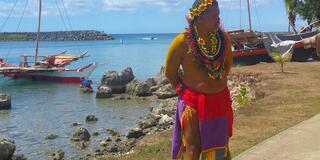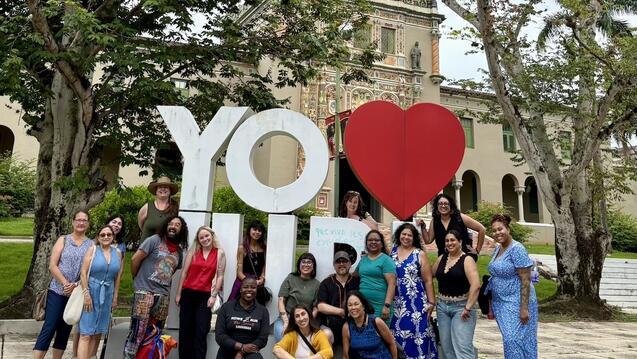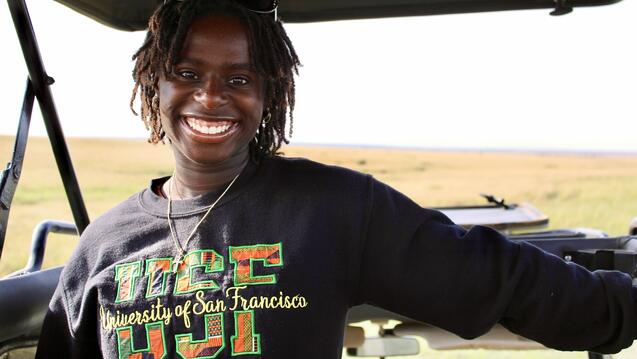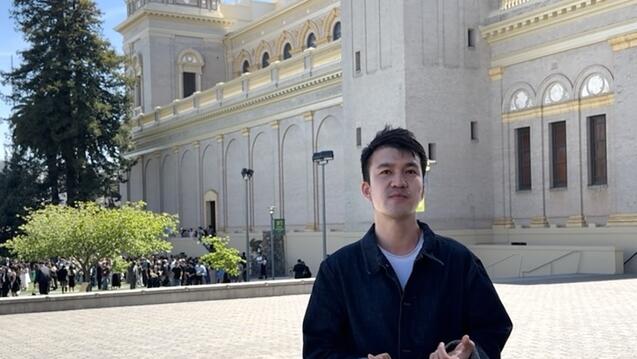Look, Listen, Lead

How much of your college education can be used to guide you in life? Larry Raigetal '92, a professional wayfinder, says everything you learn counts.
Raigetal comes from Lamotrek, an island in the Pacific where canoe-building and navigating by the stars are cultural traditions. He is keeping the ancient ways alive by teaching students at the University of Guam how to build canoes and navigate using the cosmos.
Learn Your Place
Raigetal began learning how to build canoes at age 5, with his father, grandfather, uncles, and the community on Lamotrek as his teachers. Though these lessons weren’t labeled as such, they were the start of Raigetal’s Jesuit education.
“It’s not just the canoe that’s being worked on. The elders are also telling stories, and you learn values that have been passed on for generations,” he said.
The stories often taught the same lesson, Raigetal said. The universe should be respected first; the earth, ocean, and trees next; and the self last. This teaching applied to all aspects of life on Lamotrek, including canoe-building.
On Lamotrek, canoes are made from logs that have washed up on the shore or fallen during a storm, he said. “If you cut a tree, the teaching is that you have to plant a minimum of 20 trees for it.”
Find Your Way
Education on an island of 350 people and in a university with 3,000 students is the same, Raigetal said. It takes a village.
The ideal crew size for carving and sailing a canoe is 10. Each person brings particular skills to the table, and they rely on each other.
“Whether they’re herbal medicine, weathermen, master carvers, master house builders — ultimately one of them is the navigator,” Raigetal said.
To become a master navigator like Raigetal, you have to learn all 10 skills. During his time at USF and in his graduate work in international studies at Oxford, he worked toward that goal.
“Navigation teaches you to know what you’re doing and not to skip steps,” he said. “You can’t go from A to C without going to B.”
Pave the Path
Sometimes the best way to move forward is to look back, said Raigetal.
For 4,000 years, people on his island have understood the 32 compass stars, the moon, the wave patterns, and the wind directions. He wants people to survive on the sea without the help of GPS and fossil fuels.
“When they run out of fuel or we can’t replace the parts, we’re left to the mercy of wherever the wind and the current take us,” he said. “Not on the canoe. The canoe makes me feel much safer.”
Fossil fuels are disappearing but the stars aren’t going anywhere, Raigetal said. When the future makes us uneasy, he said it helps to remember our connection to each other and the universe.
“When you learn navigation, one of the first things you’re taught is to take a good look back at the island before it disappears on the horizon,” he said. “Only when I see where my island of origin is, can I understand where I’m going.”


